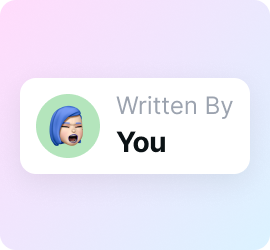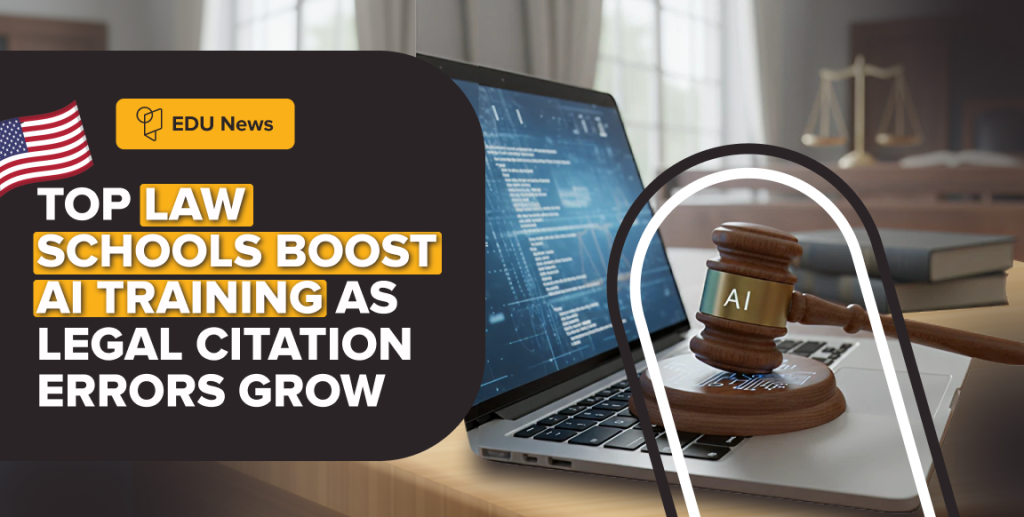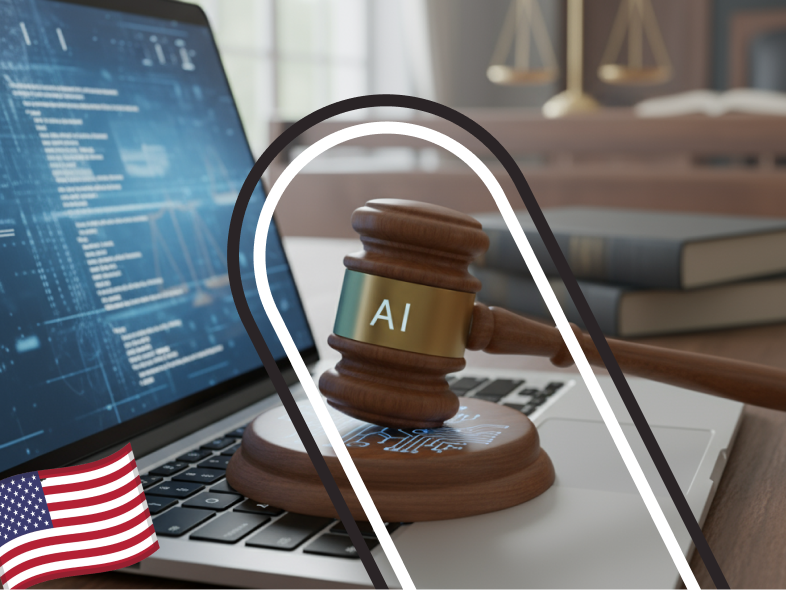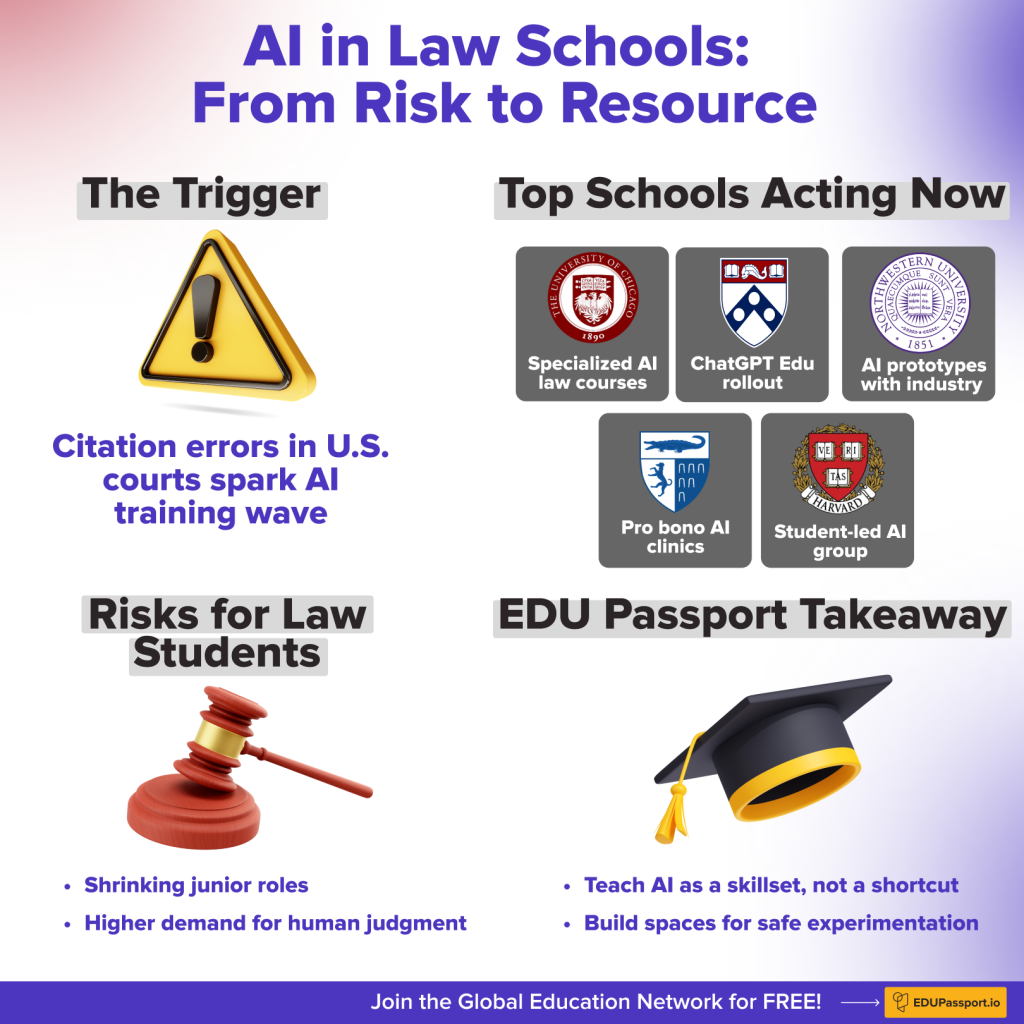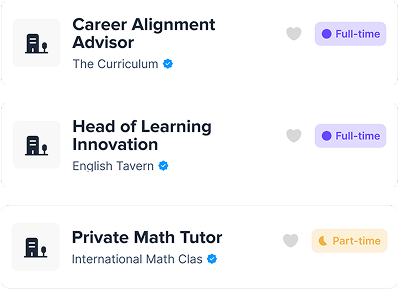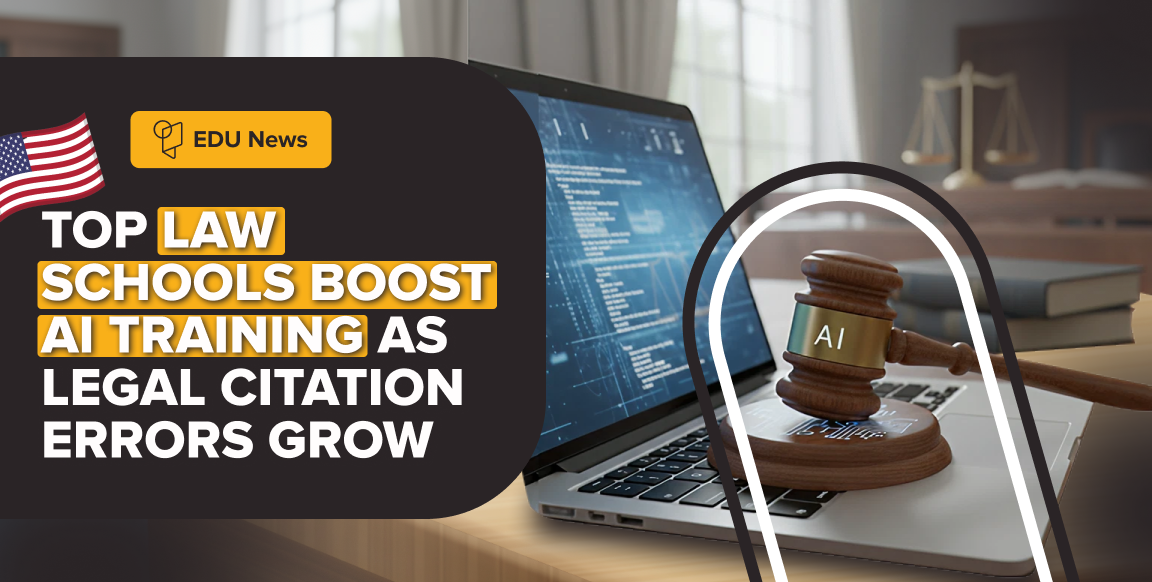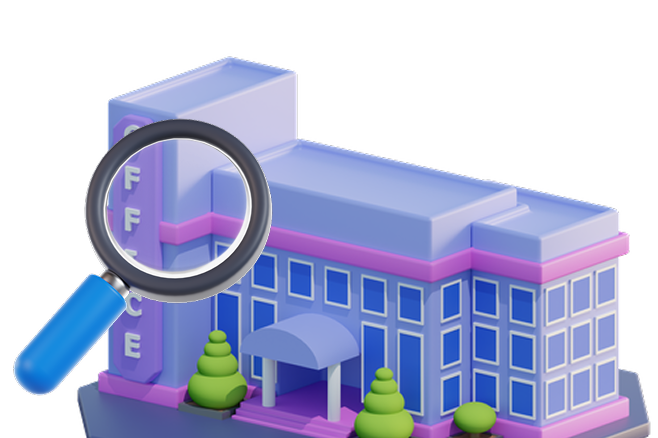Elite U.S. law schools are reshaping their curricula to prepare students for the risks and opportunities of artificial intelligence in the legal profession. The move comes after high-profile cases where attorneys were fined for submitting legal briefs riddled with AI-generated citation errors.
From Chicago to Yale, Penn to Harvard, law schools are now teaching students to harness AI responsibly — not as a replacement for judgment, but as a tool that requires constant verification.
Why Law Schools Can’t Ignore AI Anymore
“You can never give enough reminders and enough instruction to people about the fact that you cannot use AI to replace human judgment,” says William Hubbard, deputy dean at the University of Chicago Law School.
With law firms already investing heavily in AI — and clients expecting faster, cheaper work — students need to graduate with a clear understanding of both the power and pitfalls of generative AI.
What’s Changing in the Classroom
- University of Chicago → Courses like Generative AI in Legal Practice and Regulation of AI. Small classes (15–20 students) mix theory with hands-on trials.
- University of Pennsylvania → Deploying ChatGPT Edu to 300 first-year students and legal writing fellows. Secure, closed models create safe spaces for responsible experimentation.
- Yale Law School → Clinics where students train AI on renters’ rights and media law, then stress-test outputs for errors. “We don’t just teach students law — we teach them how to teach AI law,” says Professor Scott Shapiro.
- Northwestern University → Cross-disciplinary teams (law + computer science) build AI prototypes for partners like Adobe and Thomson Reuters.
- Harvard → Students took initiative by founding the Harvard Law Artificial Intelligence Student Association, pressing for faster integration.
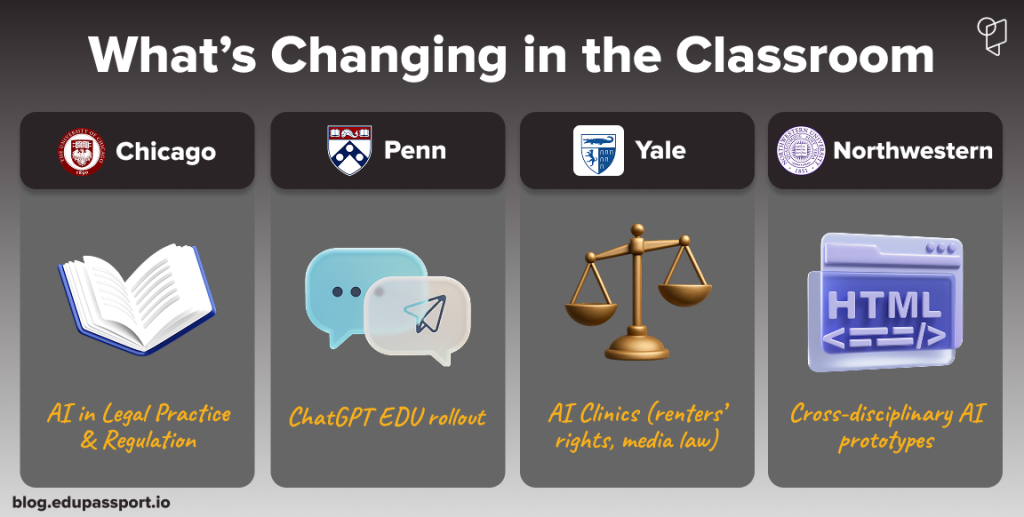
The Risks Ahead
AI isn’t just a shiny tool for faster briefs — it’s restructuring law itself.
Nikia Gray of the National Association for Law Placement warns AI could accelerate the “senior leverage model”:
- Fewer junior associates
- More reliance on senior attorneys
- Shrinking entry-level hiring
Translation? Today’s law grads need to prove they can bring judgment, context, and value beyond what AI can spit out.
EDU Passport’s Perspective
The legal field is a cautionary tale for all of education. As AI spreads, schools that pretend it’s “someone else’s problem” are setting students up to stumble.
For law schools — and beyond — the lesson is clear:
- Teach AI as a skillset, not a shortcut.
- Train students to question, verify, and apply human judgment where machines fail.
- Build interdisciplinary labs so mistakes happen in class, not court.
AI won’t stop at law. It’s rewriting careers across every field. EDU Passport is here to help institutions stay a step ahead.



